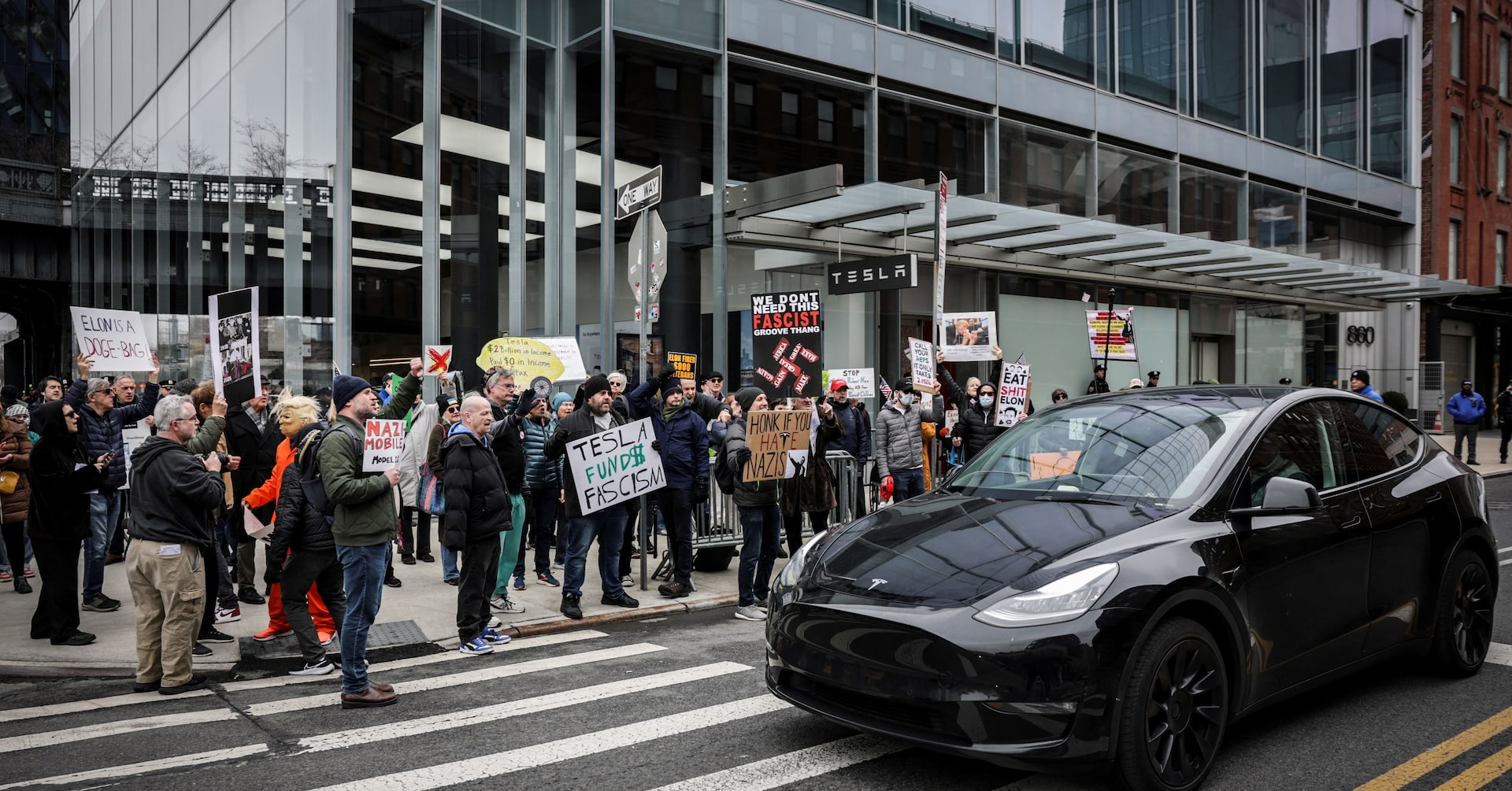U.S. Attorney General Pamela Bondi announced on Thursday that three individuals have been charged in connection with arson incidents at Tesla car dealerships and charging stations. If convicted, these individuals face prison sentences ranging from five to 20 years.
Bondi warned, “Let this be a warning: if you join this wave of domestic terrorism against Tesla properties, the Department of Justice will put you behind bars.”
Tesla has become a target for activists opposing President Donald Trump’s political agenda and the role of his adviser Elon Musk, Tesla’s CEO, in implementing it. Musk is leading efforts to reduce the federal payroll through the Department of Government Efficiency and has overseen the cancellation of contracts at the U.S. Agency for International Development, which funds humanitarian programs globally.
The three charged individuals include Lucy Grace Nelson, 42, who was charged in February with possession of a destructive device and malicious destruction of property used in interstate commerce. Nelson has pleaded not guilty and was released on bond. Adam Matthew Lansky, 41, faces a destructive device charge after allegedly throwing about eight Molotov cocktails at a Tesla dealership in Salem, Oregon. Lansky has been ordered detained to await trial and has not yet entered a plea. Daniel Clarke-Pounder, 24, was charged earlier this month after allegedly throwing incendiary devices at Tesla charging stations in North Charleston, South Carolina. Witnesses reported that Clarke-Pounder also spray-painted a profane message about Trump and the words “Long Live Ukraine” in the parking lot. Clarke-Pounder is charged with malicious destruction of property and has been released on $10,000 bond.
Additionally, a series of “Tesla Takedown” protests have occurred at dealerships nationwide, encouraging Americans to sell their Teslas and the company’s stock to protest the administration’s cuts and Musk’s role. These protests have led to arrests in some cities. In support of Musk, President Trump stated last week that any violence against Tesla dealerships would be labeled as domestic terrorism, and perpetrators would “go through hell.”
At this stage, labeling the attacks as domestic terrorism is primarily about public messaging. There is no specific criminal charge for domestic terrorism in the U.S. legal system, but prosecutors can seek longer prison terms at sentencing if they believe the crime was intended to intimidate the government or its citizens. — news from Reuters
